Finding Data (Search Engines)
Finding data of interest is an important first step in data reuse. Recognizing this, EDI takes extra effort to expand data discovery beyond the EDI Search Engine to also include the DataONE and Google Dataset Search Engines.
EDI Search Engine
Searchable components of data package metadata are indexed by the EDI Search Engine. The full set of searchable fields are listed in tabs of the EDI Data Portal Advanced Search Interface.
EDI Data Portal
Simple text search and the advanced search interface are accessible from the EDI Data Portal home page.

Advanced search
The advanced search interface consists of eight feature tabs, each representing a different search parameter. These search parameters can be used individually or in tandem with the others to create a query with which to search for datasets. When using the advanced search interface, any selected parameters will be saved until the Submit button is pressed. All parameters are combined with a boolean "AND". After pressing submit, use the web browser back button to refine search parameters. To reset all parameters, click the Clear All button.
Overly specific search criteria may result in poor search results dataset? If this is the case, try reducing the search criteria.
Spatial / Place Name
Search by the name of a location or set geographic boundaries from the Spatial / Place Name tab. Geographic boundaries can be set by zooming in on a map or by entering coordinates and selecting Dataset is Contained within Boundaries.
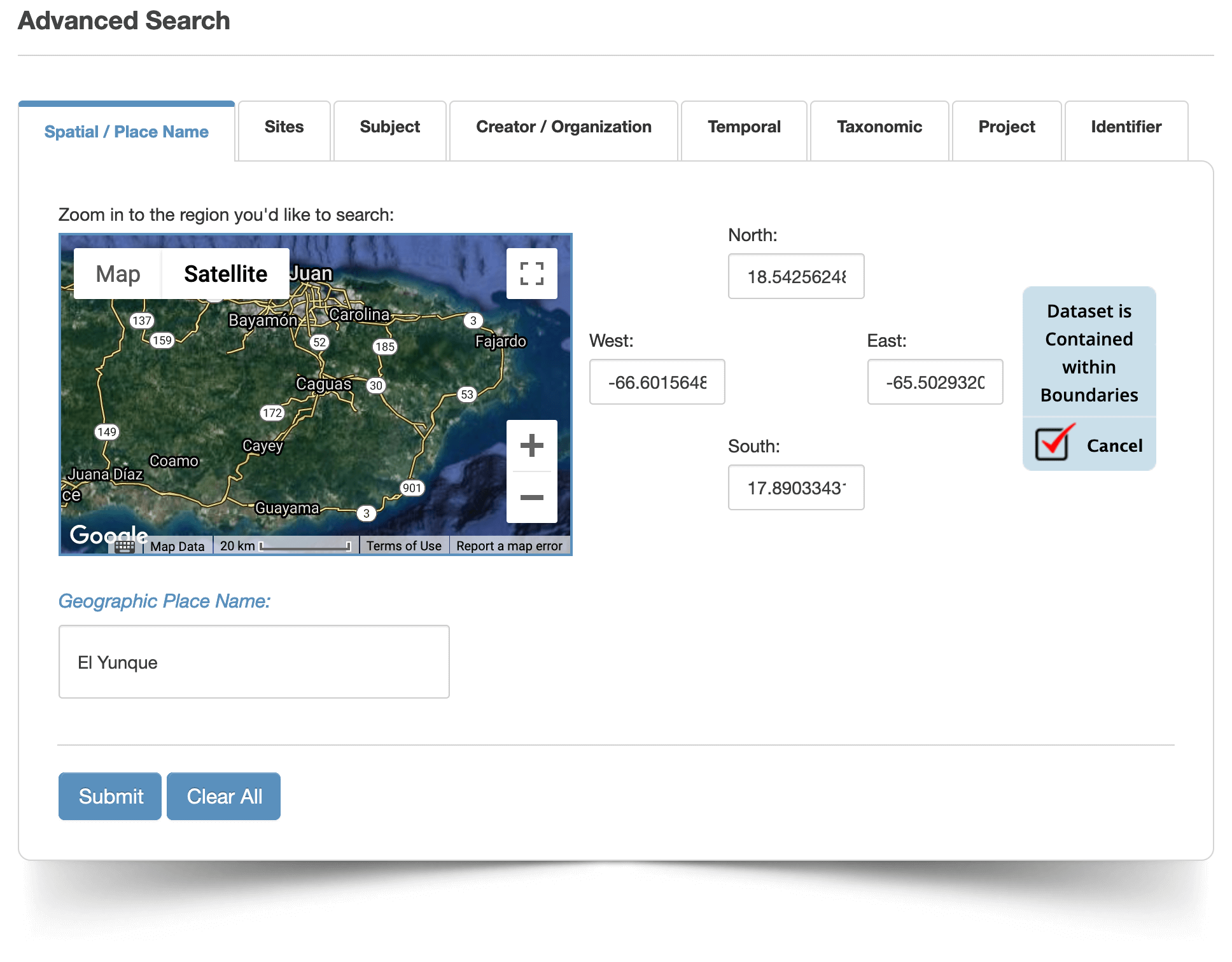
Sites
Find data from a subset of LTER sites from the Sites tab. Hold the shift button to highlight consecutive site names, or the control/command button to select multiple disparate sites.
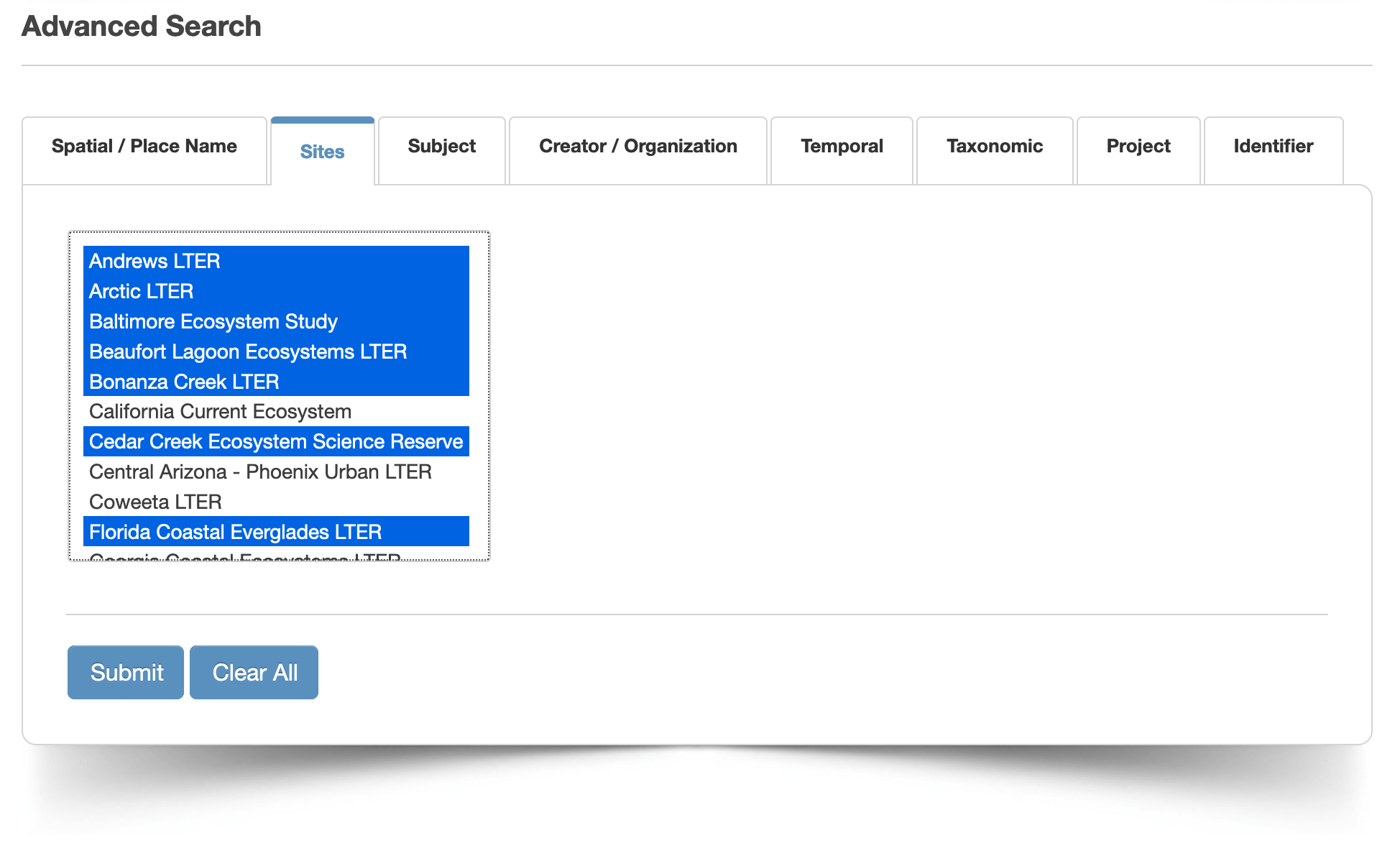
Subject
Add a text search to your query from the Subject tab. Text search can be applied specifically to the metadata title, abstract, or keywords (or all three) using the radio buttons. The search can be expanded by allowing the query to return results that include more specific terms (a search for "aquatic" would include "lakes"), related terms (a search for "lakes" would include "ponds"), or both. Expand the search even further by including the 15403 data packages from the EcoTrends and 10492 data packages from the LTER Landsat projects in the results.
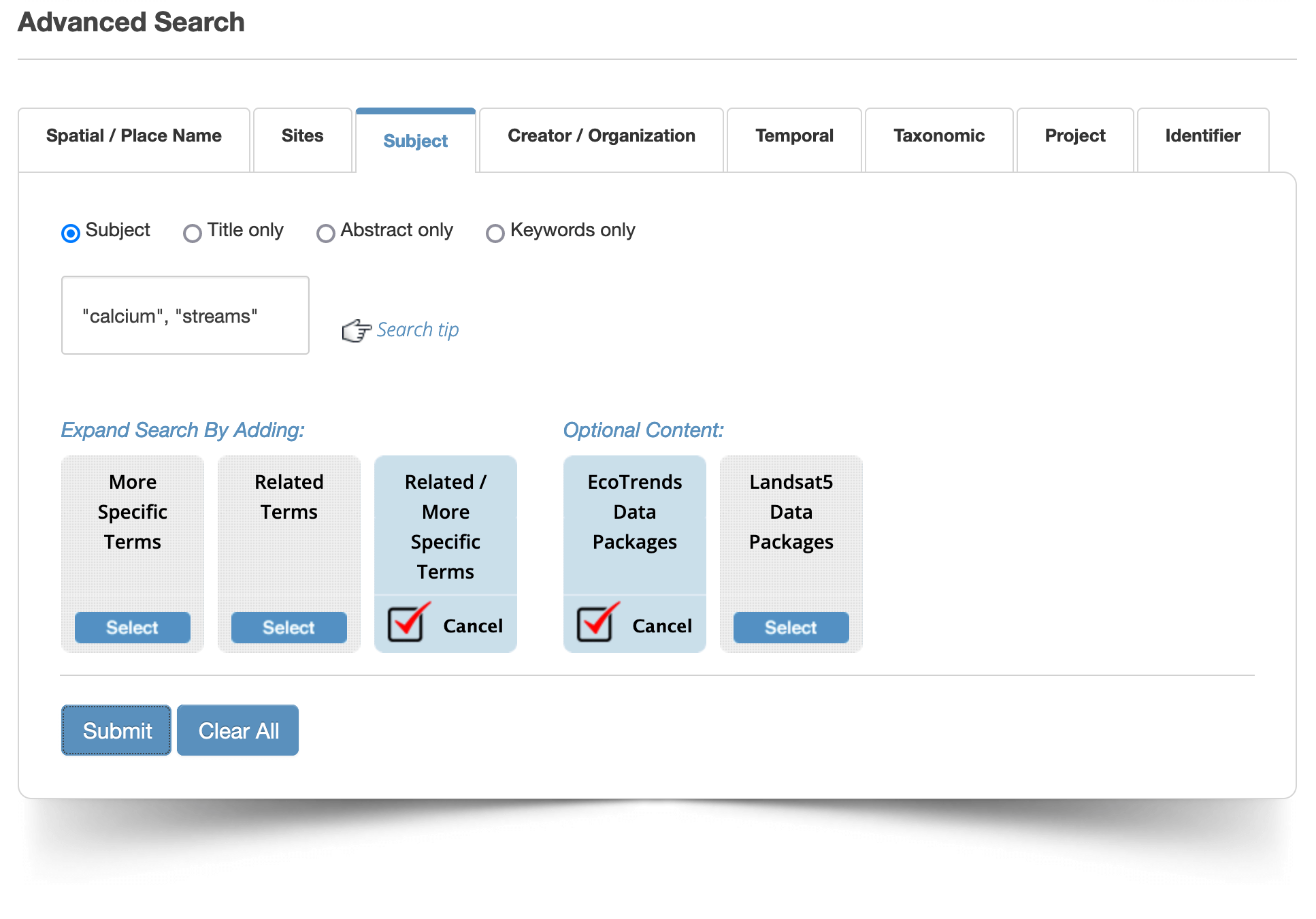
Creator / Organization
To limit search results to a specific creator or organization, select names from the dropdown lists under the Creator / Organization tab.
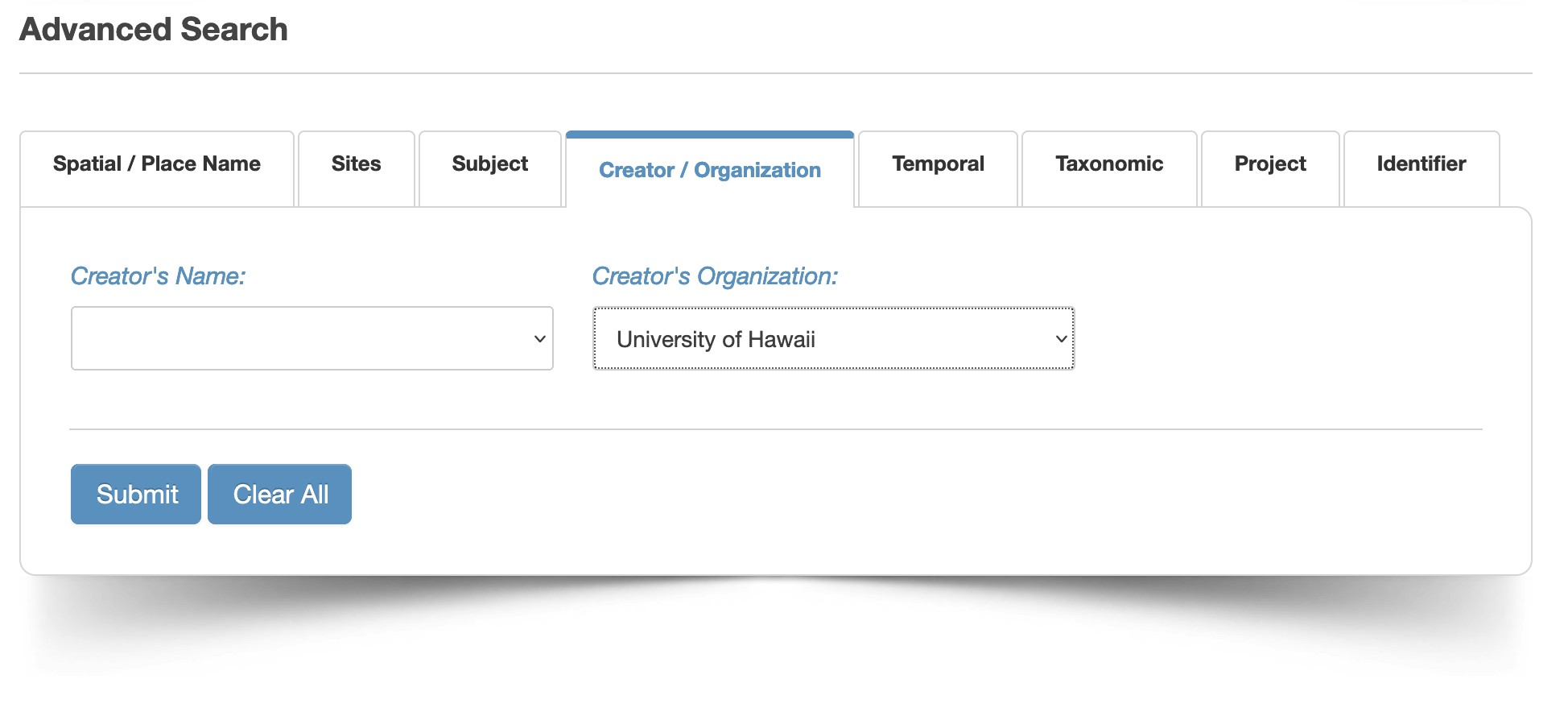
Temporal
From the Temporal tab, narrow the query to specific dates of data collection or publication with the Start Date and End Date. Search for studies that cover specific durations with Min Duration and Max Duration. Narrow results to specific time periods with Named Time-Scale.
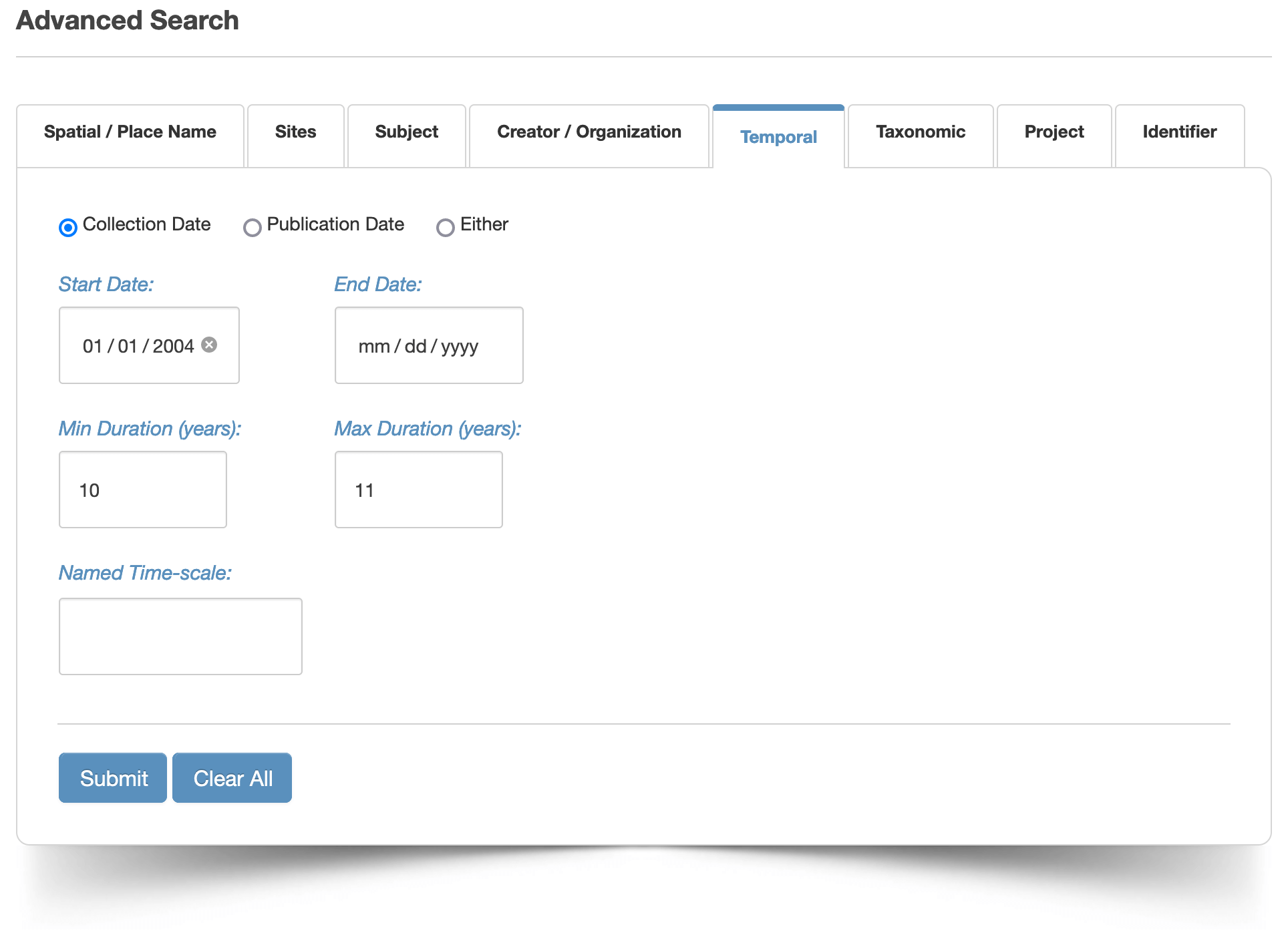
Taxonomic
Filter on a specific taxon in the Taxonomic search tab.
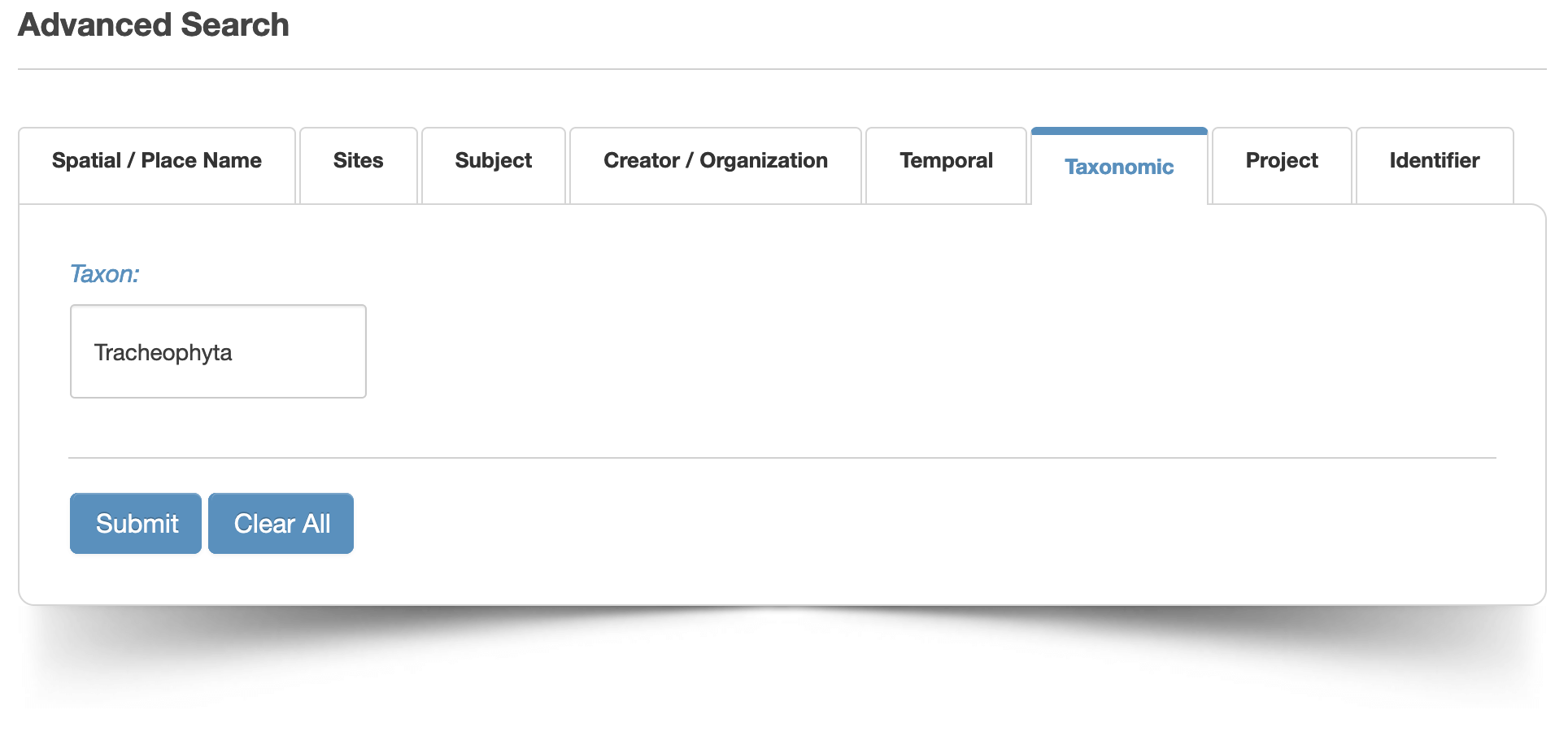
Warning: Not many datasets have taxonomic metadata for the search engine to operate on. This search feature will become more useful as data packages include this taxonomic information.
Project
Use a project title or a funding ID to narrow results from the Project tab.
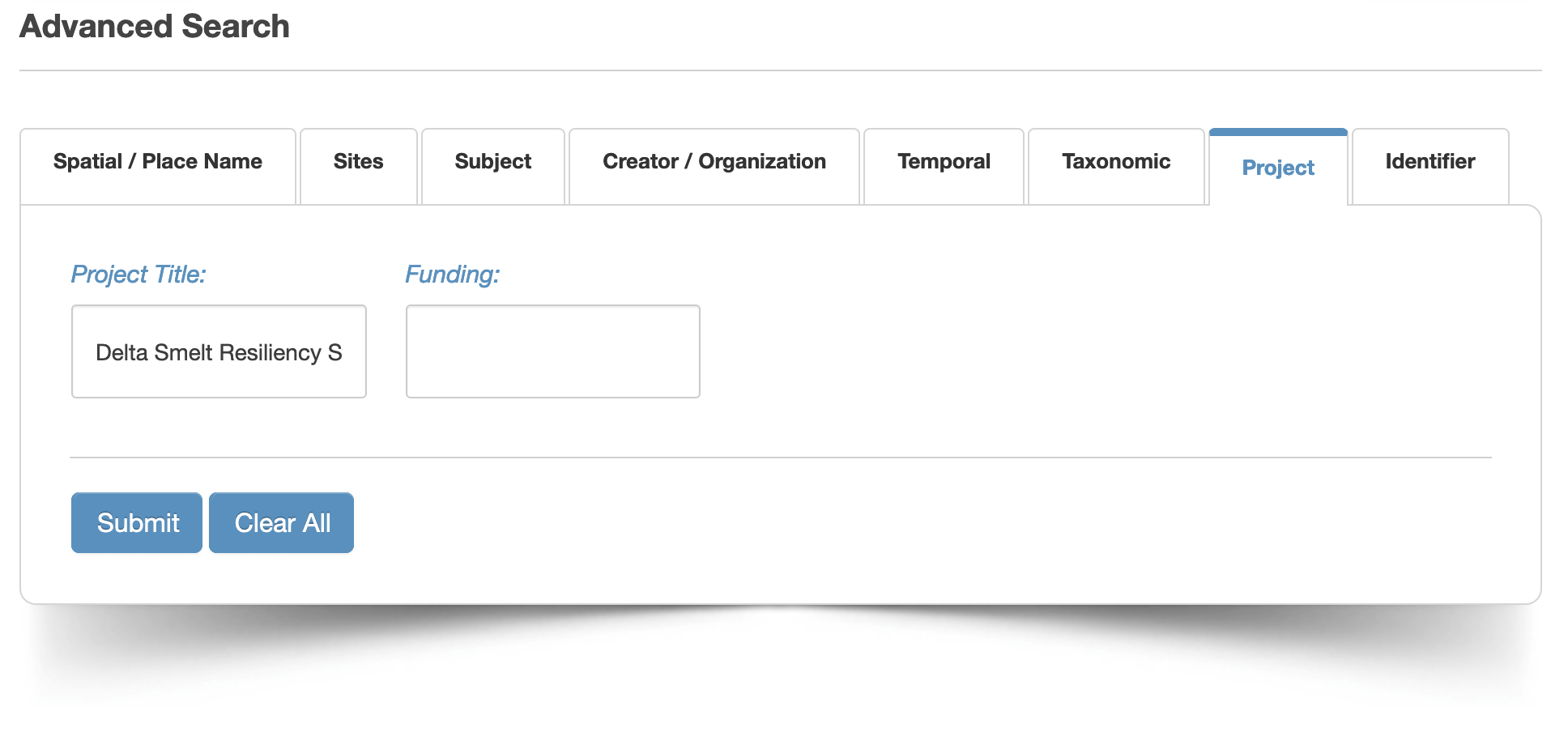
Identifier
Search for a specific package identifier from the Identifier tab.
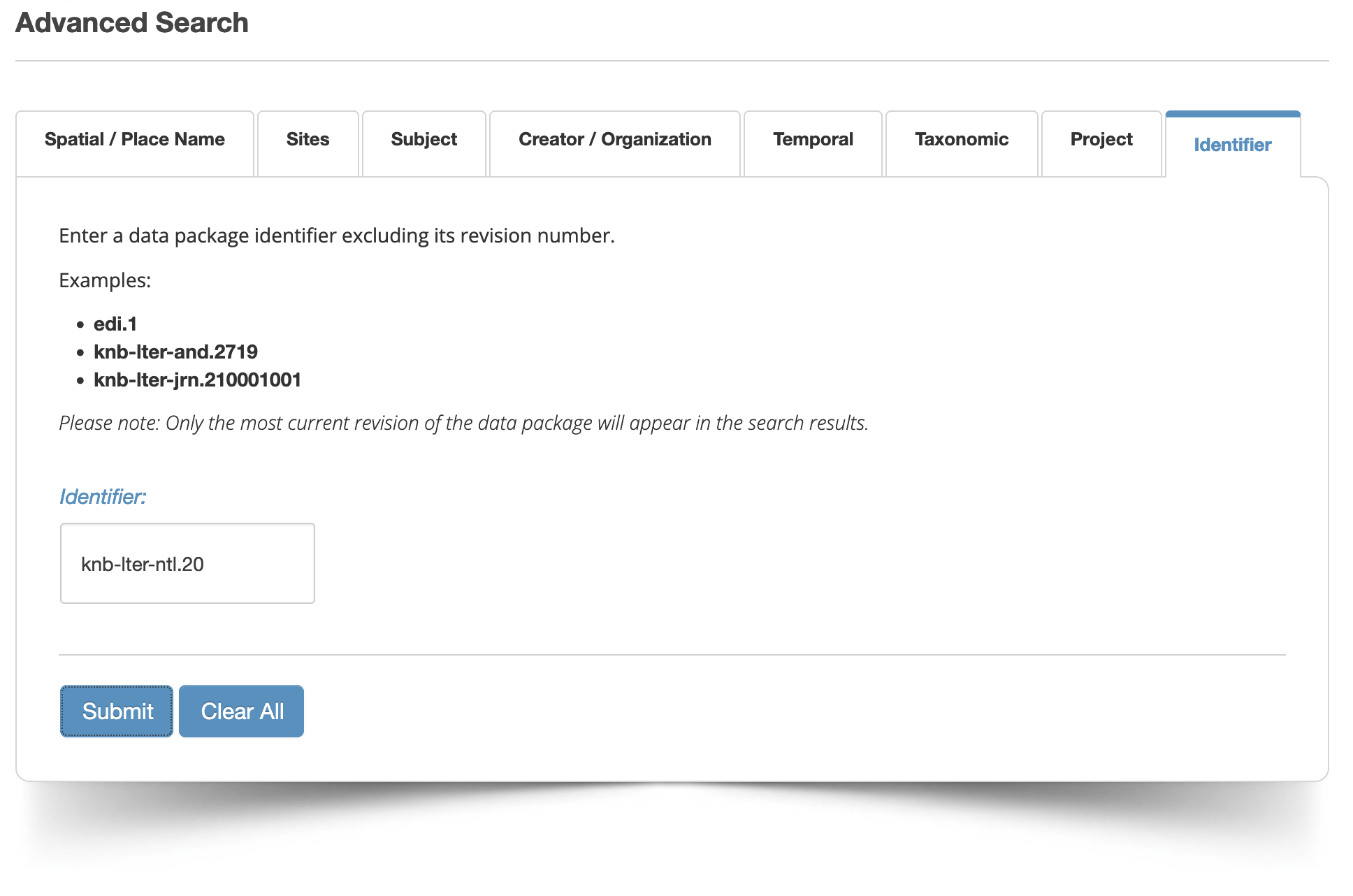
EDIutils
The search_data_packages() function allows programmatic search across the EDI Data Repository using Apache Solr queries. See the Search and Access vignette for an example of searching and accessing data using EDIutils.
For a language-agnostic solution, see the REST API documentation for Search Data Packages.
DataONE Search Engine
The DataONE Search Engine allows data users to search for EDI data packages alongside other member repositories specializing in Ecological, Earth, and Environmental research. Along with some search parameters similar to those offered by EDI, users can search across a subset of Member Nodes (i.e. data repositories), and filter datasets that contain specific data attribute types (i.e. measurement variables) or by embedded keyword tags.
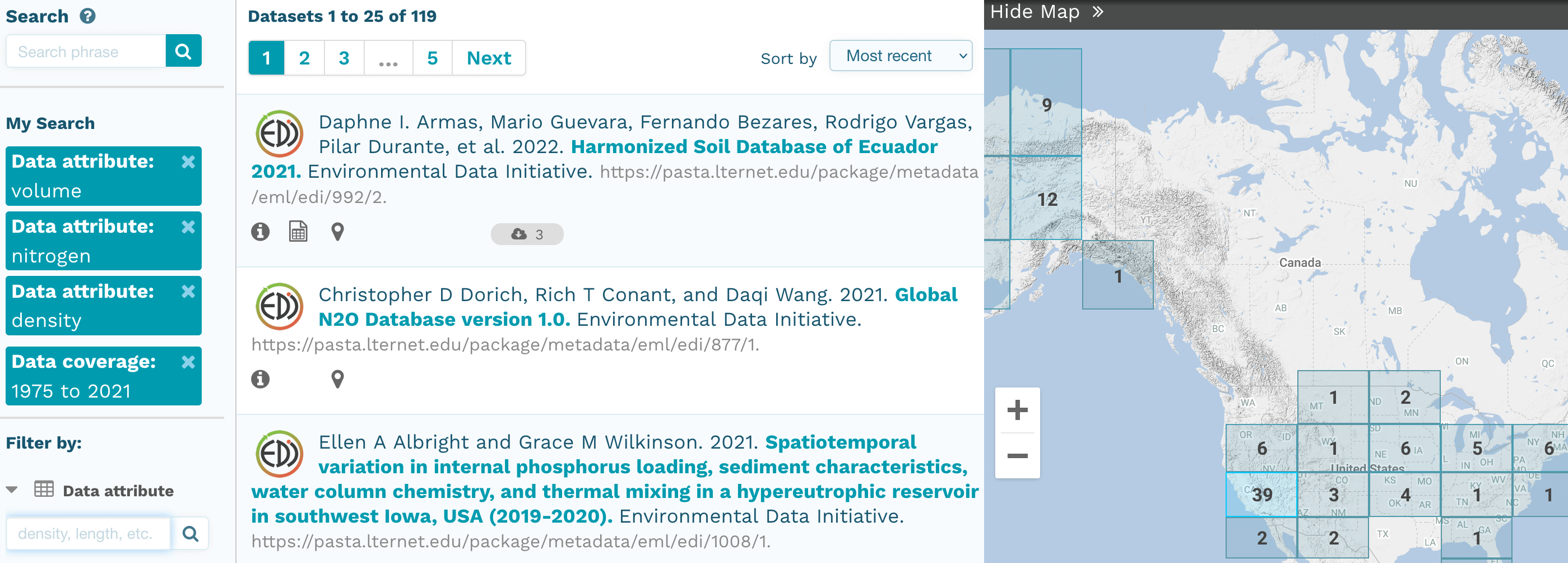
Google Dataset Search Engine
The Google Dataset Search Engine facilitates discovery of EDI data among all datasets on the internet. Currently, the search accepts queries in a free text form and search results can be filtered by last updated, download format, usage rights, and topic.